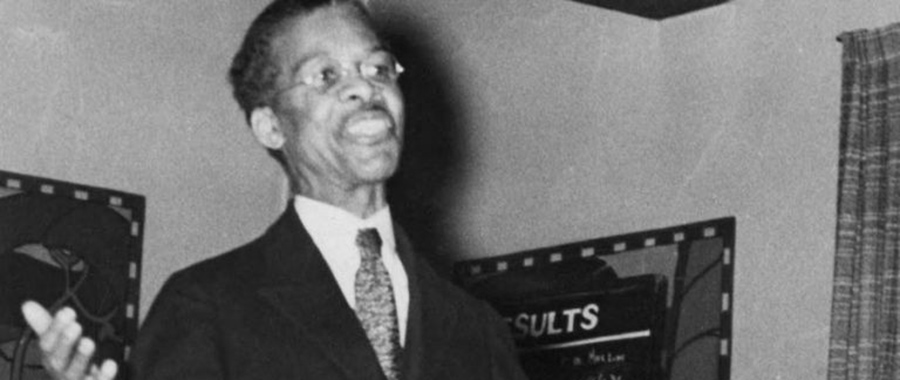The intersection of spiritual awakening and civic engagement has significantly shaped the fabric of African American history. Within this milieu, numerous early Black civic leaders emerged as not only champions of social justice but also as fervent adherents of the Bahá’í Faith. This exploration unravels the multifaceted motivations that propelled these individuals towards Bahá’í teachings, underscoring the profound impact they made both within their communities and on the broader social landscape.
The early 20th century heralded a transformative period, characterized by burgeoning civil rights movements and the perennial quest for equality. Figures such as W.E.B. Du Bois and Louis Gregory epitomized a synthesis of activism and spiritual inquiry. Their engagement with the Bahá’í Faith was not merely a personal spiritual journey; rather, it served as a nexus for collective advancement and empowerment.
Initially, the allure of the Bahá’í Faith for these leaders stemmed from its principles of unity, justice, and the intrinsic dignity of all individuals. This was a period when systemic racism and segregation obfuscated the threads of community cohesion. The Bahá’í teachings posited a radical reimagining of societal structures, emphasizing the interdependence of all human beings. For Black civic leaders, the tenets of this faith resonated deeply with their aspirations for equality and the eradication of prejudice.
Furthermore, the life experiences of these leaders cultivated a profound understanding of social inequities. Their personal narratives often paralleled those of marginalized communities. Many had faced systemic barriers, which in turn fueled their fervent activism. The Bahá’í message provided not just solace but also a framework for activism grounded in love, respect, and moral integrity. These civic leaders recognized that the ethical imperatives of the Bahá’í Faith aligned seamlessly with their commitments to civil rights and community development.
A salient aspect of the Bahá’í teachings is the emphasis on the elimination of prejudice of all kinds. This principle held substantial appeal for individuals who had encountered firsthand the corrosive effects of racial discrimination. The Bahá’í Faith champions the idea that humanity is one, transcending boundaries of race, ethnicity, and nationality. This ideal was not only aspirational but practical, providing a blueprint for leaders striving for societal transformation. Engaging with Bahá’í principles gave these leaders tools for dialogue and reconciliation — critical components in a landscape often marred by division.
As the movement gained traction, key figures emerged as pivotal conduits of Bahá’í teachings within African American communities. Louis Gregory, for instance, ventured beyond mere conversion; he became a luminary of Bahá’í philosophy. His work exemplified the synthesis of deep spiritual understanding and rigorous civic engagement. Gregory’s public lectures and writings galvanized support for the Bahá’í Faith while simultaneously advocating for civil rights, thus expanding the reach of both the faith and the movement for equality.
In exploring the lives of these civic leaders, it is imperative to acknowledge the environmental dynamics that influenced their spiritual journeys. The backdrop of the Harlem Renaissance, coupled with the Great Migration, created fertile ground for the convergence of artistic expression, political consciousness, and spiritual awakening. Intellectual salons, literati gatherings, and community forums ebbed and flowed with discussions on racial justice and spiritual enlightenment. This milieu provided an ideal context for the dissemination of Bahá’í teachings among enthusiastic seekers of truth.
Education played a pivotal role in fostering a deeper understanding of Bahá’í principles. Many early Black Bahá’ís were ardent advocates for literacy and education within their communities. They recognized education as a powerful tool for emancipation — politically, socially, and spiritually. By embracing Bahá’í perspectives on knowledge and capacity building, these leaders laid the groundwork for initiatives that would uplift and empower future generations.
Moreover, the interactions between Bahá’í leaders and civil rights activists were often symbiotic. Collaboration across racial lines became emblematic of a shared vision for justice and unity. The teachings of the Bahá’í Faith advocated for consultation and collective decision-making, mechanisms that were invaluable in the fight for civil rights. This collaborative framework cultivated alliances and fostered a culture of mutual respect — essential components for the longevity of social movements.
However, the journey was not devoid of challenges. Early Black Bahá’ís often grappled with the complexities of their dual identities as both racial minorities and as members of a faith that prided itself on universal principles. This tension sparked critical discourse within both the Bahá’í community and broader civil rights circles. Yet, many of these leaders persevered, using their influence to bridge divides and advocate for both racial justice and spiritual progress.
The legacy of early Black civic leaders who embraced the Bahá’í Faith remains indelible. Their contributions reverberate through contemporary movements advocating for racial equality and social justice. By integrating their spiritual convictions with civic responsibility, they crafted a holistic approach to activism that continues to inspire new generations. Their narratives exemplify the profound interconnectedness of faith, social justice, and community empowerment.
Through examining the lives and contributions of these pioneering figures, we discern the transformative potential inherent in adopting a holistic worldview characterized by unity and justice. The teachings of Bahá’u’lláh resonate with individuals striving for positive social change while offering a robust framework for navigating the complexities of modernity. Thus, as we reflect on the contributions of early Black civic leaders who became Bahá’ís, we reaffirm the essential role spirituality plays in shaping just and equitable societies.
